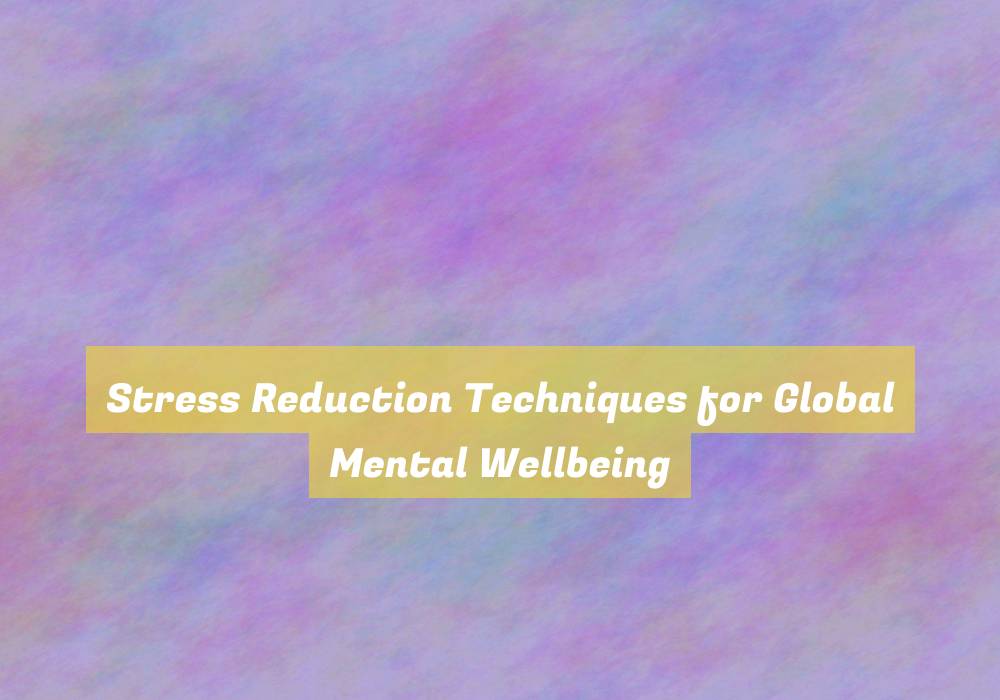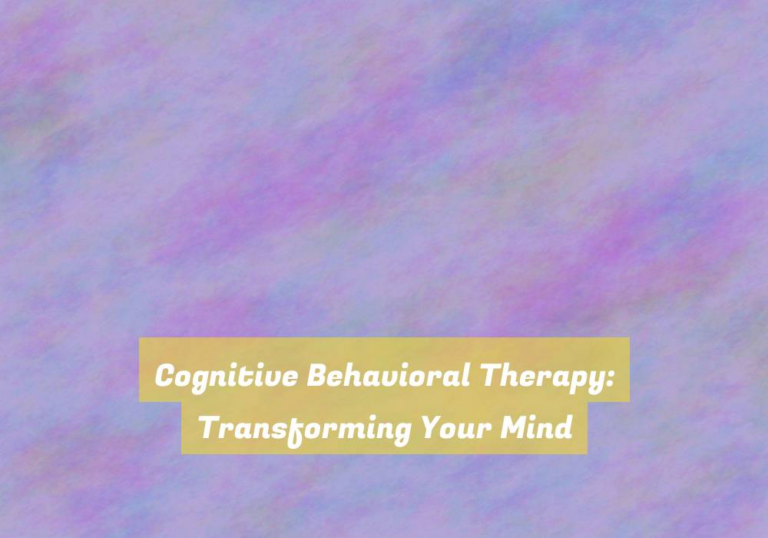Stress Reduction Techniques for Global Mental Wellbeing
Imagine a tree swaying in the wind, its branches bending gracefully without breaking. Just like that tree, people around the world face stress every day, but finding the right techniques to manage it can make all the difference.
From the bustling streets of Tokyo to the serene beaches of Fiji, stress is a universal experience. In a rapidly changing and interconnected world, the need for effective stress reduction techniques is more important than ever.
So, how can we cultivate a global culture of mental wellbeing and resilience in the face of stress?
Mindfulness Practices for Stress Reduction
To reduce stress, practice mindfulness techniques such as deep breathing and meditation.
Mindfulness involves focusing your attention on the present moment and accepting it without judgment.
Deep breathing can help calm your mind and body by reducing stress hormones. Find a quiet space, sit or lie down comfortably, and take a deep breath in through your nose, allowing your abdomen to expand. Then, exhale slowly through your mouth, letting all the air out. Repeat this several times, and feel the tension release from your body.
Meditation is another powerful tool for stress reduction. Find a peaceful environment, close your eyes, and focus on your breath or a calming word or phrase. When your mind starts to wander, gently bring your attention back to your breath or the word.
Over time, mindfulness practices can train your mind to better handle stress and improve your overall well-being.
Physical Exercise and Stress Management
Practice incorporating physical exercise into your daily routine as an effective way to manage and reduce stress. Engaging in regular physical activity can have a profound impact on your mental wellbeing. When you exercise, your body releases endorphins, which are natural stress fighters. These endorphins act as mood elevators and can help reduce feelings of anxiety and tension.
Whether itG??s going for a brisk walk, hitting the gym, practicing yoga, or participating in a team sport, finding an activity that you enjoy can make a significant difference in your stress levels.
In addition to the chemical changes that occur in your brain when you exercise, physical activity can also provide a much-needed break from the stressors of daily life. It allows you to shift your focus away from the sources of stress and concentrate on the present moment. This mental break can help you gain a new perspective and approach challenges with a clearer mind.
Furthermore, regular exercise can improve your overall sense of well-being and boost your confidence, making you better equipped to handle stress in the long run.
Relaxation Techniques for Mental Wellbeing
How can you incorporate relaxation techniques into your daily routine to improve your mental wellbeing and reduce stress?
One effective method is practicing deep breathing exercises. When youG??re feeling overwhelmed, take a few minutes to focus on your breath. Inhale deeply through your nose, hold it for a few seconds, and then exhale slowly. This simple technique can help calm your mind and reduce feelings of anxiety.
Another relaxation technique is progressive muscle relaxation, where you systematically tense and then release each muscle group in your body, promoting a sense of physical and mental relaxation.
Guided imagery is also a powerful tool for relaxation. Close your eyes and visualize a peaceful, serene place, allowing yourself to immerse in the calming sensations.
Additionally, engaging in activities such as yoga, meditation, or tai chi can significantly reduce stress and promote mental wellbeing.
Making time for hobbies and activities you enjoy, such as reading, listening to music, or spending time in nature, can also provide relaxation and rejuvenation.
Social Support and Connection for Stress Relief
Connecting with friends and loved ones can be a powerful way to alleviate stress and foster a sense of support and connection. In times of stress, reaching out to others can provide a source of comfort and understanding. Whether itG??s a simple phone call, a video chat, or meeting in person, the act of sharing your feelings and experiences with someone you trust can help lighten the burden you may be carrying.
Engaging in social activities and spending quality time with friends or family members can also provide a much-needed break from the pressures of daily life. Being in the presence of supportive individuals can boost your mood and remind you that you arenG??t alone in facing lifeG??s challenges. Additionally, participating in group activities or community events can create a sense of belonging and solidarity, further strengthening your social support network.
Cultivating strong social connections canG??t only reduce your stress levels but also contribute to your overall mental wellbeing. Therefore, prioritize spending time with those who uplift and support you as part of your stress relief strategy.
Conclusion
In conclusion, practicing mindfulness, engaging in physical exercise, using relaxation techniques, and seeking social support are all effective ways to reduce stress and promote mental wellbeing.
By incorporating these techniques into your daily routine, you can better manage the pressures of life and improve your overall mental health.
Remember to prioritize self-care and seek support when needed to maintain a healthy balance in your life.






